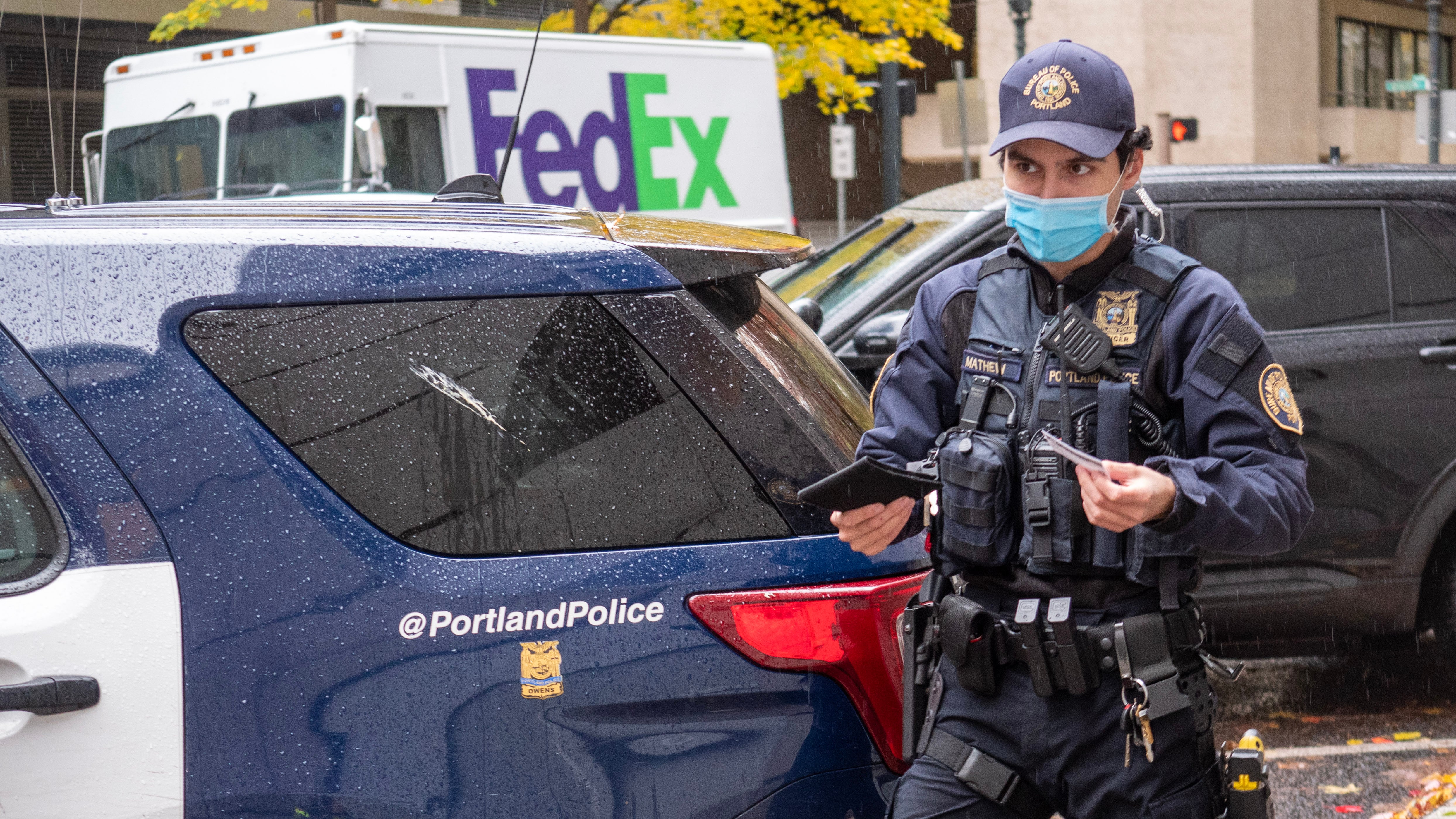In June, Mayor Ted Wheeler and Portland Police Chief Chuck Lovell announced a procedural change to the Police Bureau’s traffic enforcement protocols: Officers would no longer prioritize traffic stops for low-level infractions that don’t present an “immediate public safety threat,” like expired tags or a broken taillight.
The updated protocol was intended to reduce racial disparities in Portland traffic stops.
In 2019, for example, white Portlanders accounted for about 65% of traffic stops, despite making up about 77% of the population, according to U.S. Census Bureau data. Meanwhile, Black people, who represent about 5.8% of Portland’s population, accounted for roughly 18% of traffic stops that year.
“The goal is to make our city both safer and more equitable, helping reduce the number of Black, Indigenous, and people of color who are disproportionately impacted by consent searches and traffic stops,” Wheeler said at the time of the policy change.
But the most up-to-date data made available by the Police Bureau shows that, in the first three months after the change in protocol, the racial disparities remained mostly the same. (Data from the fourth quarter has not yet been released.)
According to PPB’s traffic stop data from the third quarter of 2021, which spans July to September, Black drivers made up 17.5% of traffic stops citywide. That’s a slight decrease from the second quarter (18.3%) and the first (18.9%).
Meanwhile, traffic stop rates for white motorists have remained virtually unchanged: 63.56% in the first quarter, 63.57% in the second and, again, 63.56% in the third.
“This is the first data we’ve received since I put out my guidance, and I’m happy to see the numbers moving in the right direction,” Chief Lovell tells WW. “They’re not exactly where we’d like to see them yet, but progress can take time and is a process.”
Despite the meager changes to racial disparities, the overall number of traffic stops has decreased significantly: 4,857 in quarter one, 3,527 in quarter two, and 2,275 in quarter three. It is unclear whether that decrease is a result of the procedural change or other factors, such as a thinning Police Bureau workforce.
